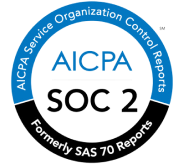Table of Content
- Introduction
- The Evolution of HR Software
- The Power of Low-Code in HR
- What are the 3 Benefits of Implementing Low-Code Software?
- How Low-Code HR Software Streamlines Your HR workflows like a Pro?
- Common Misconceptions about Low-Code HR Software
- How to Integrate Low-Code HR Software Effectively?
- Conclusion
- FAQs on Low-code HR software
Introduction
Today, in the VUCA world, the quest for achieving efficiency is paramount. Enter low-code HR software, a game-changer that promises to make your workflow seamless. So explore the new ways in which a tool like uKnowva helps you streamline your workflows with full flexibility and low-code functionality as per your business needs and demands.
Want to skip the post?

The Evolution of HR Software
HR software like uKnowva has come a long way from being mere databases. Traditional systems often need more support, with rigid structures and limited adaptability. Low-code HR software marks a paradigm shift, offering a more flexible and user-friendly approach to managing HR workflows.
The Power of Low-Code in HR
- Reducing Manual Tasks
Gone are the days of drowning in paperwork. Low-code empowers HR professionals to automate routine tasks, from resume screening to document processing. This not only saves time but also minimises the risk of errors, allowing HR teams to focus on strategic initiatives.
- Accelerating HR Processes
Speed is of the essence in HR, especially during recruitment. Low-code facilitates rapid development, enabling the creation of custom applications tailored to specific HR needs. This acceleration translates into quicker hiring processes, ensuring top talents are acquired promptly.
- Enhancing Collaboration
Effective collaboration is the backbone of a successful HR department. Low-code platforms provide a unified space for collaboration, breaking down silos between different HR functions. This fosters seamless communication and ensures everyone is on the same page.
What are the 3 Benefits of Implementing Low-Code Software?
- Time and Cost Savings
One of the most tangible benefits of low-code in HR is the significant reduction in time and costs associated with manual processes. Automation of repetitive tasks means HR professionals can allocate their time to more strategic activities, driving overall efficiency.
- Increased Efficiency
Efficiency is the key to HR success, and low-code is the master key. By automating tasks, minimising errors, and accelerating processes, HR departments can achieve unparalleled efficiency, meeting organisational goals with precision.
- Adaptable to Changing HR Needs
The HR landscape is dynamic, with constant changes in regulations and workforce dynamics. Low-code HR platforms provide the flexibility to adapt quickly to these changes. Customisable applications can be modified on the fly, ensuring HR processes stay aligned with evolving business requirements.
How Low-Code HR Software Streamlines Your HR workflows like a Pro?
- Streamlining Recruitment Efforts
Recruitment is the heartbeat of HR, and low-code software fine-tunes this process. It simplifies candidate tracking, application processing, and communication, resulting in a seamless recruitment journey. The result is a more efficient and effective hiring process.
- Automating Onboarding Processes
First impressions matter, and low-code ensures a positive one for new hires. By automating onboarding processes, from document submission to orientation scheduling, HR professionals can provide a seamless onboarding experience. This sets the stage for productive and engaged employees.
- Optimising Data Management
Data management is at the core of HR responsibilities. Low-code HR software excels in this aspect, offering robust tools for secure data storage, retrieval, and analysis. This optimization ensures that HR professionals have access to accurate and timely information, supporting strategic decision-making.
Common Misconceptions about Low-Code HR Software
- Myth: Low-code is only for tech-savvy HR professionals.
Reality: Low-code platforms are designed for simplicity, empowering even non-tech HR professionals to leverage their capabilities.
- Myth: Low-code compromises data security in HR processes.
Reality: When implemented correctly, low-code HR software enhances data security through encryption and stringent access controls.
How to Integrate Low-Code HR Software Effectively?
Steps to Seamless Implementation
- Assess HR Workflow: Identify areas where automation and customization can bring the most value.
- Choose the Right Low-Code Platform: Select a platform that aligns with your HR needs and offers scalability for future growth.
- Invest in Comprehensive Training: Ensure HR teams are well-versed in using the low-code platform, minimising resistance, and maximising productivity.
- Continuous Evaluation and Improvement: Regularly assess the impact of low-code on HR workflow and make necessary adjustments to optimise performance.
Conclusion
Embracing low-code HR software is not just a technological upgrade; it's a strategic decision to make your HR workflow seamlessly efficient. From recruitment to data management, the power of low-code transforms HR processes, ensuring a more agile, responsive, and productive workforce. As you navigate the future of HR, let low-code be the catalyst for a seamless and streamlined HR operation.
FAQs on Low-code HR software
What exactly is low-code HR software?
Low-code HR software is a technology that enables HR professionals to create custom applications with minimal coding, streamlining, and automating HR processes.
Is low-code suitable for all types of businesses?
Absolutely! Low-code is scalable and adaptable, catering to the needs of businesses of all sizes.
How does low-code HR software impact data security?
With proper implementation, low-code HR software enhances data security through encryption and access controls, ensuring the confidentiality of HR information.
Can non-tech HR professionals effectively use low-code HR software?
Yes, low-code platforms are designed with user-friendliness in mind, making them accessible to non-tech HR professionals.
What influence does low-code have on HR analytics?
Low-code HR software enhances HR analytics by providing efficient data management and analysis capabilities, contributing to more informed decision-making.
Are there any disadvantages to using low-code HR software?
While the advantages are substantial, challenges may include the need for initial training and potential resistance to change within the HR team.












